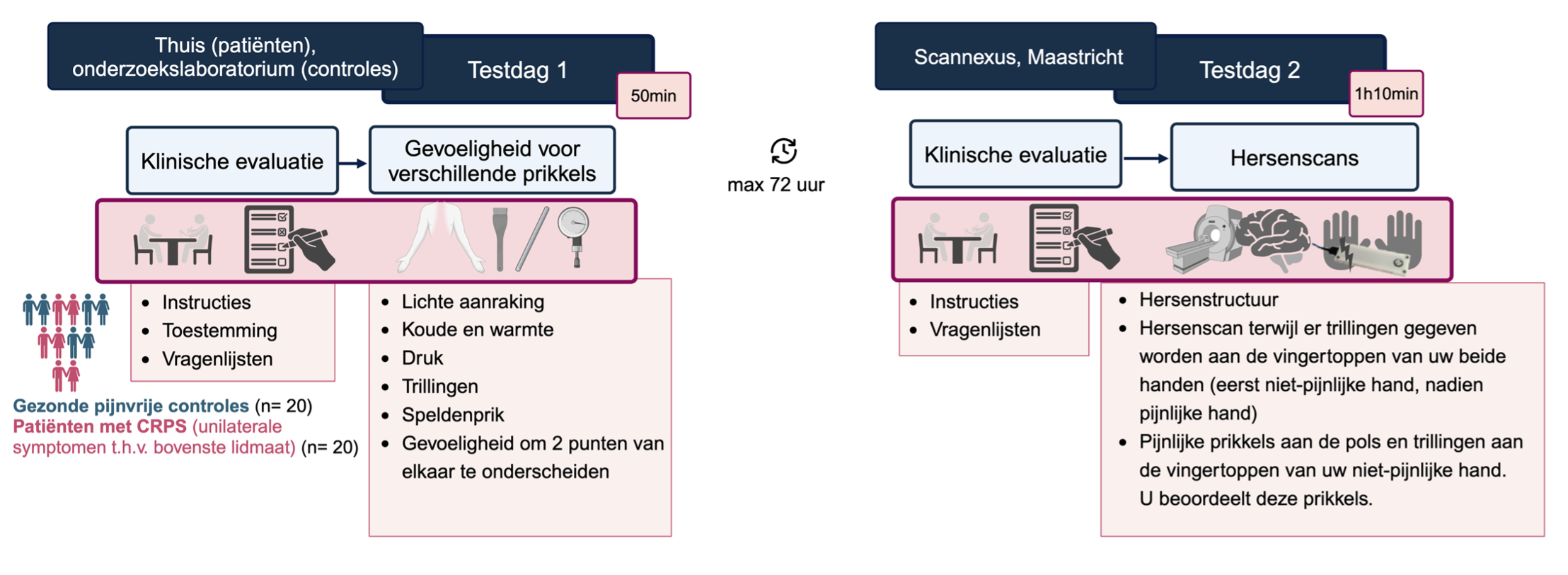Iris Coppieters | Imaging fear of painful touch
Imaging fear of painful touch: unraveling relationships between neural correlates of pain-related fear, somatosensory neuroplasticity, and sensory impairments in the context of chronic pain. A Marie Curie financed study by Iris Coppieters for the Experimental Health Psychology research group at the Faculty of Psychology and Neuroscience at Maastricht University.
The abstract | the experiment | the team
The abstract
Chronic pain affects > 20% of people worldwide leading to enormous personal suffering and economic burden. A key factor contributing to chronic pain disability that thus far has been neglected is fear of painful touch - a core symptom in people with complex regional pain syndrome (CRPS). FABrIC (FeAr of painful touch in the BraIn in Chronic pain) is a functional Magnetic Resonance Imaging (fMRI) study using a novel tactile fear conditioning paradigm. I will examine the neural correlates of acquisition, generalisation and extinction of fear of painful touch and interrelationships with somatosensory neuroplasticity, and sensory impairments in individuals with CRPS compared to healthy controls. Also, I will investigate how individual differences in vulnerability and resilience factors can modulate fear learning and how they affect pain-related outcomes. This MSCA project is groundbreaking and can yield novel insights in hypothesised intertwined underlying neural mechanisms of pain-related fear and relations with symptoms. I will uniquely and necessarily bridge the gap between different disciplines and pain researchers from physiotherapy, neuroscience, and psychology fields studying the same complex chronic pain disorder. Persons with CRPS endorsed the relevance of this project, which provides opportunities to alleviate the CRPS stigma and improve treatments based on newly gained insights. Maastricht University and the interdisciplinary outstanding research groups are ideal to perform this fellowship. The host developed and pioneered the tactile fear conditioning paradigm. This fellowship will provide the exceptional chance to synergistically combine my expertise of chronic pain and quantitative sensory testing with neuroscientific, neuroimaging, and threat-safety-learning expertise at the host, thereby crucially contributing to the establishment of my own independent chronic pain-brain research line, my career development and sustainable scientific collaborations.
The experiment

The team
Dr. Iris Coppieters
Principal Investigator